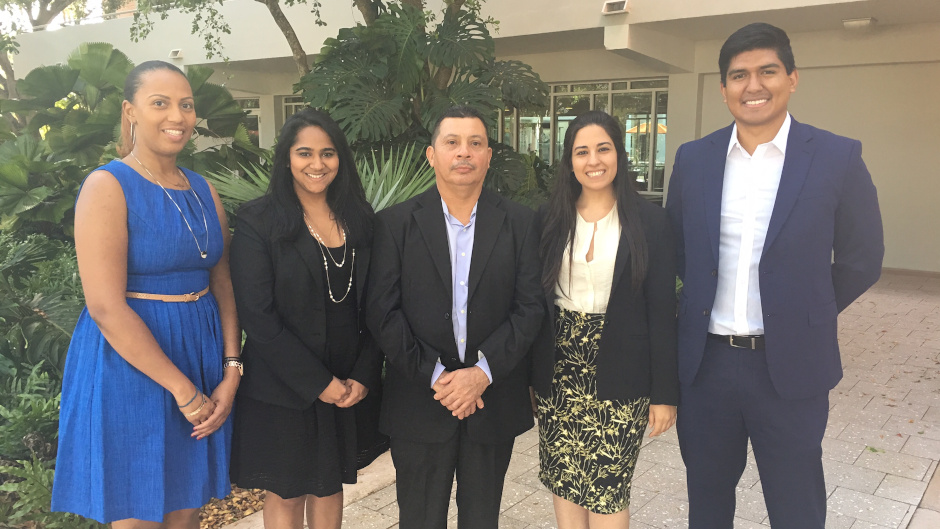After a court battle that lasted over five years, students in Miami Law’s Immigration Clinic won asylum for a Honduran man who fought against illegal logging by powerful companies with ties to the Honduran government. The case involved a controversial immigration regulation that bars from asylum anyone who had previously been deported from the United States.
The Clinic’s client was deported from the U.S. to Honduras in 1996. Years later, he became an environmental activist. Corrupt police officers with ties to the illegal logging industry shot at and threatened him. He fled to the U.S. with his youngest son. After being detained for months, the client moved to Miami and the Clinic took on his case.
In 2012, Stephanie Almirola and Jared Sonnenklar, both from the Class of ’14, represented the client in immigration court. Despite the strength of the client’s case, the immigration judge ruled that the immigration regulation prevented her from granting asylum. She instead granted the client withholding of removal, a form of relief that protects against deportation but does not permit adjustment to lawful permanent resident status or the grant of derivative asylum status to family members.
The Clinic appealed the case to the Board of Immigration Appeals and then the U.S. Court of Appeals for the Eleventh Circuit, arguing that the immigration regulation was in conflict with the asylum statute. After briefing to the Eleventh Circuit, the federal government agreed to settle the case and give the client an opportunity to apply for asylum. Students Stephanie Almirola, JD ’14, 3Ls Natalie Atkinson and Masha Ciampittiello, worked on the briefs to the Board and the Eleventh Circuit.
“This client’s story was an amazing one,” said Atkinson. “I was deeply invested in the outcome of this case. I am delighted that fairness and justness prevailed.” Other students who worked on the case at various stages include Eric Baum, Morgan France-Ramirez, Michael Maugans, Autumn Page, and Summer Niemeier, all from the Class of ’13, and 3Ls Jorge Mendia and Karyn Sanchez.
Finally, at an interview with the Asylum Office of U.S. Citizenship and Immigration Services, the client was granted asylum. Robert Santos, 2L, represented the client at the Asylum Office. “At long last, our client can feel at ease at the thought of never being forced to return to that dangerous environment,” said Santos.
The battle, however, continues as the client remains separated from his wife and eight of his children, who are still in Honduras. 2Ls Sogol Ghomeshi and Deepti Orekondy are now working on reuniting the client with his family. “It has been such a rewarding experience to help our client live peacefully with his family after the physical and emotional toll he has been through to obtain asylum,” said Orekondy.
Reflecting on the length of time their client has been separated from his family, Ghomeshi said, “It has been difficult to see our client deprived of the basic right to be with his family, but his resilience and determination is incredibly inspiring.”
The Immigration Clinic is part of Miami Law’s Clinical Program in which second- and third-year students represent clients and work on advocacy projects under the supervision of faculty members.

